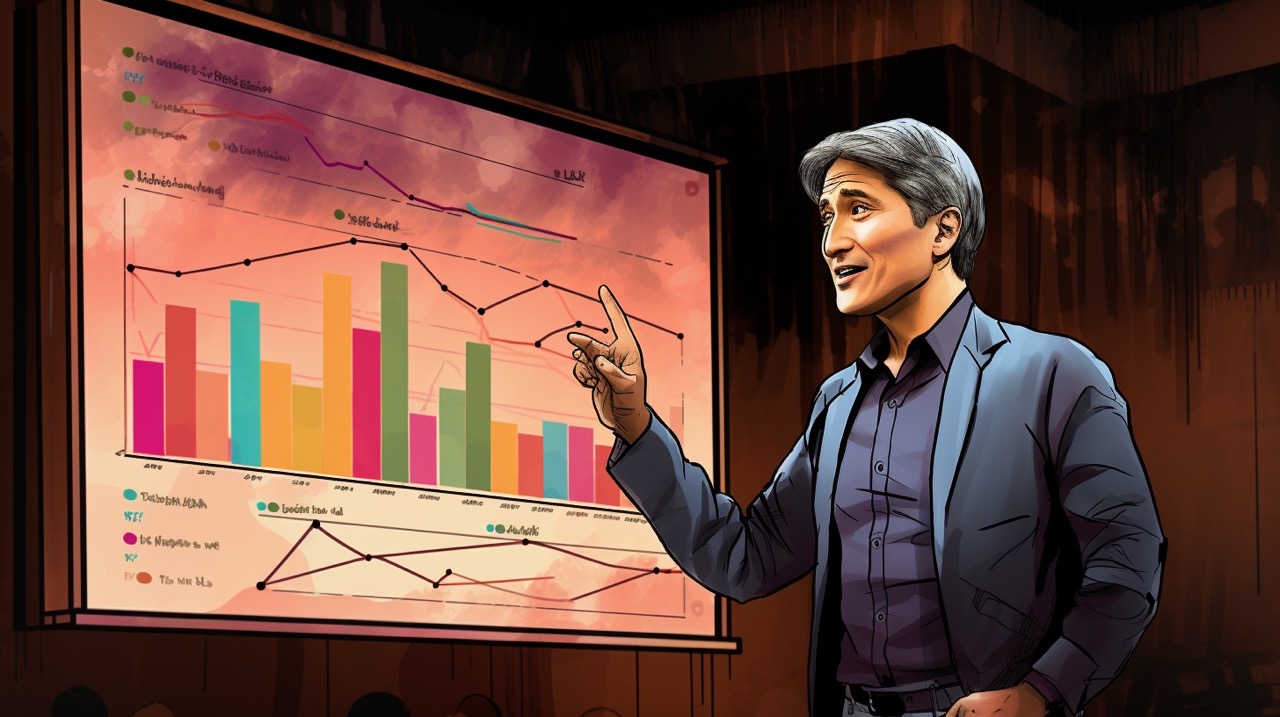California is the world’s breadbasket, which means we collect, transport and store as much water as possible. About 12% of the energy produced in the state is used to pump water.
Thrifty CEOs are just as thoughtful when it comes to managing funds: Maintaining liquidity and keeping a close eye on burn rate is the only way to determine how much runway remains.
Full TechCrunch+ articles are only available to members.
Use discount code TCPLUSROUNDUP to save 20% off a one- or two-year subscription.
In this overview for first-time founders, Benjamin Döpfner (founder and CEO of Vesto) explains how to develop a treasury management strategy that optimizes operating and strategic cash reserves.
“Given the recent meltdown of SVB, First Republic and other startup-focused banks, finding ways to protect your cash is vital,” says Döpfner.
“Startups need to double down on protecting their cash more than ever before, particularly if it sits in a small- or medium-sized bank.”
TechCrunch Disrupt takes place next week, and I’m moderating three panel discussions on the Builders Stage:
- When to Follow the Hype and When to Ignore It?
- How Founders Should Approach the TAM Question When Venture Capital Is Scarce
- How to Stretch Your Venture Dollars
I’ll also join immigration lawyer and TC+ columnist Sophie Alcorn for a live version of “Ask Sophie,” so bring your questions.
It’s shaping up to be a very busy week, so we’ll be back on Friday, September 22 with a new TC+ Roundup.
See you in San Francisco!
Walter Thompson
Editorial Manager, TechCrunch+
Your B2B leads are going to waste

Image Credits: banusevim (opens in a new window) / Getty Images
Everyone wants to be the hero who saves the day, but it’s hard to hit a home run in B2B sales.
Instead of allowing customer data to gather dust in your CRM, sales teams should develop a segmented strategy to reach out to lapsed leads, says TC+ columnist Jonathan Martinez.
“It’s possible to accomplish this goal, even with limited resources, by having automations and a complete strategy in place.”
8 Latin American VCs share why they’re brimming with optimism about the region’s startups

Image Credits: Rafael Paulucci / Getty Images
For our latest survey, Anna Heim interviewed eight VCs who are active in Latin America to learn more about the sectors they’re watching, why the region has stopped minting unicorns, and “what would it take to reignite foreign investors’ interest:”
- Denis Pedreira, Latin America Investments, Prosus Ventures
- Lolita Taub, general partner, Ganas Ventures
- Geraldo Melzer, founding partner, ABSeed Ventures
- Julio Vasconcellos, managing partner, Atlantico
- Rodrigo Vieira, partner, Caravela Capital
- Nathan Lustig, managing partner, Magma Partners
- Marta Cruz, co-founder and managing partner, NXTP Ventures
- Hernán Haro, founder and general partner, MrPink VC
Ask Sophie: Can I get an O-1A visa to bypass the H-1B process?

Image Credits: Bryce Durbin/TechCrunch
Dear Sophie,
I am an international student from India who will be eligible for STEM OPT starting in January.
My plan has been to find a way to use it for my tech startup, but eventually, I need to shift to a work visa because I want to be the CEO.
Can I bypass the whole H-1B visa thing by getting an O-1A visa? If yes, can I do it with just a bachelor’s degree? What counts as extraordinary ability?
— Spirited STEM Student
Get the TechCrunch+ Roundup newsletter in your inbox!
 To receive the TechCrunch+ Roundup as an email each Tuesday and Friday, scroll down to find the “sign up for newsletters” section on this page, select “TechCrunch+ Roundup,” enter your email, and click “subscribe.”
To receive the TechCrunch+ Roundup as an email each Tuesday and Friday, scroll down to find the “sign up for newsletters” section on this page, select “TechCrunch+ Roundup,” enter your email, and click “subscribe.”
Click here to subscribe
Can the quick grocery delivery model only work in emerging markets?

Image Credits: Getty Images/Bet_Noire
Closures and consolidations hit the quick grocery delivery sector in the U.S. last year, but in Latin America, positive unit economics make these companies more viable, reports Rebecca Szkutak.
Lower labor costs and direct relationships with food producers are just two factors giving these startups wider margins in emerging markets, she found.
“In Western Europe, and the U.S., it’s all about average order value,” said Larry Aschebrook, a managing partner at G Squared. “It just doesn’t work otherwise.”
What’s missing from Guy Kawasaki’s 10-slide deck

Image Credits: Haje Kamps (opens in a new window) / midjourney.com (opens in a new window)
Guy Kawasaki is an author, speaker and self-described “evangelist,” but many know him best for his pitch deck ethos: Founders should create just 10 slides using 30-point font that takes 20 minutes to present.
“Kawasaki’s 10-slide deck gets a few things extremely right,” says Haje Jan Kamps, but after comparing it to his own “21-point pitch deck checklist,” he says the VC’s template “doesn’t work as well” as it used to.
Source link

